A&S Faculty News
August 2017
Hayhoe on Climate Change, Hurricane Harvey
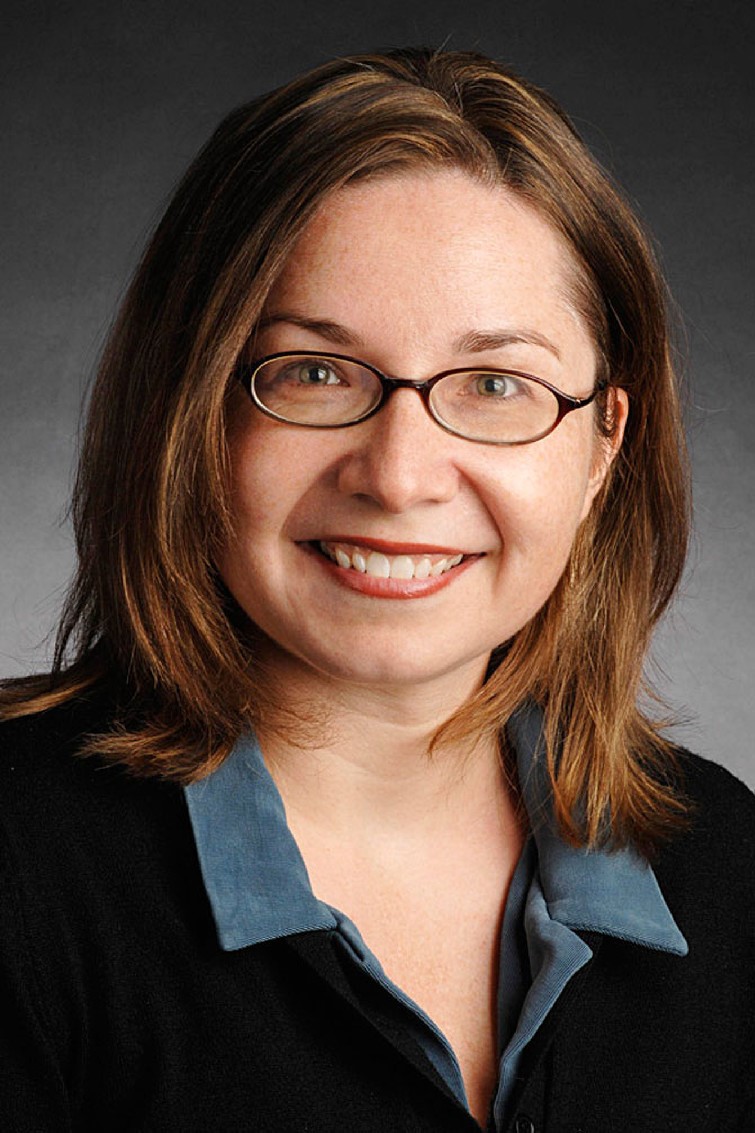 Katharine Hayhoe, Associate Professor in the Department of Political Science and Director
of TTU's Climate Science Center, was mentioned in a story originally appearing in
Climatewire and republished August 25 in Nature America/Scientific American. The article held that then-upcoming Hurricane Harvey "could prove to be one of the
biggest political tests of President Trump's tenure," pointing out that this would
be the first major test of "emergency management reforms installed after President
George W. Bush's administration blundered disaster response when Hurricane Katrina
ravaged New Orleans." The article contrasted Hayhoe's explanation that "A warmer planet
causes evaporation to speed up, which means there is more water vapor in the air and
leads to more intense rainfalls," with the assumption that Trump's emphasis on fighting
terrorism and bolstering national security "would shift dollars to those efforts and
away from disaster preparedness and response programs on which local and state governments
rely." In an August 31 letter to the editor of the Chicago Tribune, Rick Knight, Illinois state coordinator of the Citizens' Climate Lobby, drew from
the same statement to argue that "We must let our senators and members of Congress
know that if they sponsor legislation to address global warming, we will have their
backs." Knight quoted Hayhoe this way: "as the world warms ... there's more water
vapor for a storm to sweep up and dump now, compared to 70 years ago."
Katharine Hayhoe, Associate Professor in the Department of Political Science and Director
of TTU's Climate Science Center, was mentioned in a story originally appearing in
Climatewire and republished August 25 in Nature America/Scientific American. The article held that then-upcoming Hurricane Harvey "could prove to be one of the
biggest political tests of President Trump's tenure," pointing out that this would
be the first major test of "emergency management reforms installed after President
George W. Bush's administration blundered disaster response when Hurricane Katrina
ravaged New Orleans." The article contrasted Hayhoe's explanation that "A warmer planet
causes evaporation to speed up, which means there is more water vapor in the air and
leads to more intense rainfalls," with the assumption that Trump's emphasis on fighting
terrorism and bolstering national security "would shift dollars to those efforts and
away from disaster preparedness and response programs on which local and state governments
rely." In an August 31 letter to the editor of the Chicago Tribune, Rick Knight, Illinois state coordinator of the Citizens' Climate Lobby, drew from
the same statement to argue that "We must let our senators and members of Congress
know that if they sponsor legislation to address global warming, we will have their
backs." Knight quoted Hayhoe this way: "as the world warms ... there's more water
vapor for a storm to sweep up and dump now, compared to 70 years ago."
Casadonte in Top 40 on Flipped Classrooms
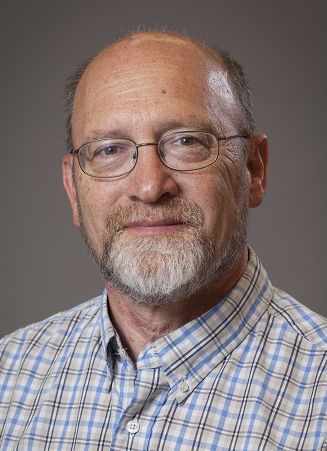 Dominick Casadonte, the Minnie Stevens Piper professor in the Department of Chemistry
& Biochemistry, has been named among the world's Top 40 educators in "flipped learning,"
a year after being named to the Top 100 educators in the teaching movement, according
to an August 24 Texas Tech Today story. Flipped learning changes the traditional educational model—class lectures, homework
and tests—to one where students watch a lecture and complete some homework problems
before coming to class. Then, the in-class time is used to recap the material, answer
student questions and work advanced problems. The honor was granted by the Flipped
Learning Global Initiative (FLGI). "I have been very active in flipped learning research
and development since nearly the beginning of the field," Casadonte told Texas Tech
Today. "I am very thankful and humbled to be included as part of a great list of educators,
especially in the STEM disciplines."
Dominick Casadonte, the Minnie Stevens Piper professor in the Department of Chemistry
& Biochemistry, has been named among the world's Top 40 educators in "flipped learning,"
a year after being named to the Top 100 educators in the teaching movement, according
to an August 24 Texas Tech Today story. Flipped learning changes the traditional educational model—class lectures, homework
and tests—to one where students watch a lecture and complete some homework problems
before coming to class. Then, the in-class time is used to recap the material, answer
student questions and work advanced problems. The honor was granted by the Flipped
Learning Global Initiative (FLGI). "I have been very active in flipped learning research
and development since nearly the beginning of the field," Casadonte told Texas Tech
Today. "I am very thankful and humbled to be included as part of a great list of educators,
especially in the STEM disciplines."
Ramkumar Says Cotton Needs New Markets
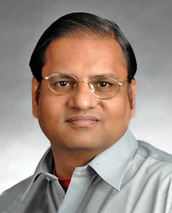 Seshadri Ramkumar, Professor of Nonwovens & Advanced Materials in The Institute for
Environmental & Human Health (TIEHH), wrote a column published August 23 in Cotton Grower. In his column, Ramkumar stressed the importance of finding new markets and new uses
for cotton. A recent meeting with some cotton leaders in India led Ramkumar to write:
"It has become clear that the industry is looking into several factors such as availability
of land for food vis-à-vis fiber, demand, cost, and competition from synthetics. With
the largest cotton crop in 11 years predicted this season in the United States, price
and demand factors will play important roles both from production and consumption
points of view."
Seshadri Ramkumar, Professor of Nonwovens & Advanced Materials in The Institute for
Environmental & Human Health (TIEHH), wrote a column published August 23 in Cotton Grower. In his column, Ramkumar stressed the importance of finding new markets and new uses
for cotton. A recent meeting with some cotton leaders in India led Ramkumar to write:
"It has become clear that the industry is looking into several factors such as availability
of land for food vis-à-vis fiber, demand, cost, and competition from synthetics. With
the largest cotton crop in 11 years predicted this season in the United States, price
and demand factors will play important roles both from production and consumption
points of view."
Dhurandhar Recommends Whole Grains
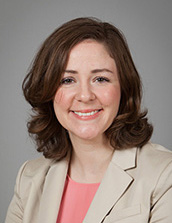 Emily Dhurandhar, Assistant Professor in the Department of Kinesiology & Sport Management,
was quoted in a WINK-News article (originally published in Consumer Reports) on how to pick a healthy cereal. The article,
posted online August 22, recommended that people look on the box for 100 percent whole-grain
as a source of fiber. Eating fiber in the morning means "you're not going to be having
a hunger attack midmorning," the article quoted Dhurandhar as saying. The article
went on to report that studies have linked whole grains to a lower risk of type 2
diabetes, heart disease, and cancer.
Emily Dhurandhar, Assistant Professor in the Department of Kinesiology & Sport Management,
was quoted in a WINK-News article (originally published in Consumer Reports) on how to pick a healthy cereal. The article,
posted online August 22, recommended that people look on the box for 100 percent whole-grain
as a source of fiber. Eating fiber in the morning means "you're not going to be having
a hunger attack midmorning," the article quoted Dhurandhar as saying. The article
went on to report that studies have linked whole grains to a lower risk of type 2
diabetes, heart disease, and cancer.
Morehead Interviewed from Eclipse Site
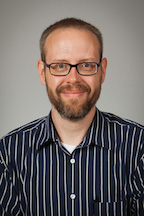 Robert Morehead, Instructor of Astronomy in the Department of Physics & Astronomy,
and Director of Texas Tech University's Preston Gott Observatory, was interviewed by the Lubbock Avalanche-Journal, KTTZ-FM, and One News Page while in Oregon to view the August 21 solar eclipse. "It happens somewhere on the
earth about every 18 months or so. But for any one place on earth it only happens
on average about once in each 300 years. And that's on average—some places on earth
haven't seen one for 1,500 years," Morehead told the A-J. "But other places on earth,
like for instance Carbondale, Ill., is actually in the path for this eclipse, and
for the next one that's going to be viewable in the United States in 2024. So, in
six years, it's going to get two total eclipses, which is pretty awesome." The A-J
article went on to quote Morehead as saying of the 2024 eclipse: "It's going to skirt
past San Antonio and Austin, and it's going to go right over Dallas."
Robert Morehead, Instructor of Astronomy in the Department of Physics & Astronomy,
and Director of Texas Tech University's Preston Gott Observatory, was interviewed by the Lubbock Avalanche-Journal, KTTZ-FM, and One News Page while in Oregon to view the August 21 solar eclipse. "It happens somewhere on the
earth about every 18 months or so. But for any one place on earth it only happens
on average about once in each 300 years. And that's on average—some places on earth
haven't seen one for 1,500 years," Morehead told the A-J. "But other places on earth,
like for instance Carbondale, Ill., is actually in the path for this eclipse, and
for the next one that's going to be viewable in the United States in 2024. So, in
six years, it's going to get two total eclipses, which is pretty awesome." The A-J
article went on to quote Morehead as saying of the 2024 eclipse: "It's going to skirt
past San Antonio and Austin, and it's going to go right over Dallas."
Estreicher Lectures on History of Wine
 Stefan Estreicher, Horn Professor of Physics in the Department of Physics & Astronomy,
gave a lecture on the beginnings of wine and viticulture August 20 at Pheasant Ridge Winery. Wine and viticulture are among Estreicher's personal passions, and he has published
multiple papers on the subject. During his talk he walked attendees through wine making
from antiquity to current methods. Estreicher received his PhD in theoretical physics
from the University of Zürich in 1982. After working as a postdoc and then instructor
at Rice University, he joined Texas Tech University in 1986. His theoretical research
deals with defects in semiconductors and nanostructures, and their impact on the electrical,
optical, and thermal properties of the material. He is a Fellow of the American Physical
Society since 1997 and of the Institute of Physics (UK) since 2006. He won the 2001
Friedrich Wilhelm Bessel Prize from the Humboldt Foundation. He has given over 50
invited and plenary conferences and over 100 technical seminars around the world.
Stefan Estreicher, Horn Professor of Physics in the Department of Physics & Astronomy,
gave a lecture on the beginnings of wine and viticulture August 20 at Pheasant Ridge Winery. Wine and viticulture are among Estreicher's personal passions, and he has published
multiple papers on the subject. During his talk he walked attendees through wine making
from antiquity to current methods. Estreicher received his PhD in theoretical physics
from the University of Zürich in 1982. After working as a postdoc and then instructor
at Rice University, he joined Texas Tech University in 1986. His theoretical research
deals with defects in semiconductors and nanostructures, and their impact on the electrical,
optical, and thermal properties of the material. He is a Fellow of the American Physical
Society since 1997 and of the Institute of Physics (UK) since 2006. He won the 2001
Friedrich Wilhelm Bessel Prize from the Humboldt Foundation. He has given over 50
invited and plenary conferences and over 100 technical seminars around the world.
Maccarone Has Warning for Eclipse Viewers
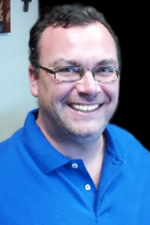 Tom Maccarone, Associate Professor of Astrophysics in the Department of Physics &
Astronomy, warned people to protect their eyes when attempting to view the August
21 solar eclipse. "The first thing to do is make sure you have proper protection,"
Maccarone said in an August 19 news article in the Lamesa Press-Reporter. The story went on to quote NASA on further eclipse dos and don'ts: "Homemade filters
or ordinary sunglasses, even very dark ones, are NOT safe for looking at the sun;
they transmit thousands of times too much sunlight." It also is not safe to look at
the sun through the viewfinder of a camera or an unfiltered telescope, binoculars,
or other optical device, NASA reports. The only safe way to look directly at an uneclipsed
or partially eclipsed sun is through special purpose solar filters, such as eclipse
glasses or handheld solar viewers, according to NASA's eclipse website.
Tom Maccarone, Associate Professor of Astrophysics in the Department of Physics &
Astronomy, warned people to protect their eyes when attempting to view the August
21 solar eclipse. "The first thing to do is make sure you have proper protection,"
Maccarone said in an August 19 news article in the Lamesa Press-Reporter. The story went on to quote NASA on further eclipse dos and don'ts: "Homemade filters
or ordinary sunglasses, even very dark ones, are NOT safe for looking at the sun;
they transmit thousands of times too much sunlight." It also is not safe to look at
the sun through the viewfinder of a camera or an unfiltered telescope, binoculars,
or other optical device, NASA reports. The only safe way to look directly at an uneclipsed
or partially eclipsed sun is through special purpose solar filters, such as eclipse
glasses or handheld solar viewers, according to NASA's eclipse website.
Wagner Studies Children and Neighborhoods
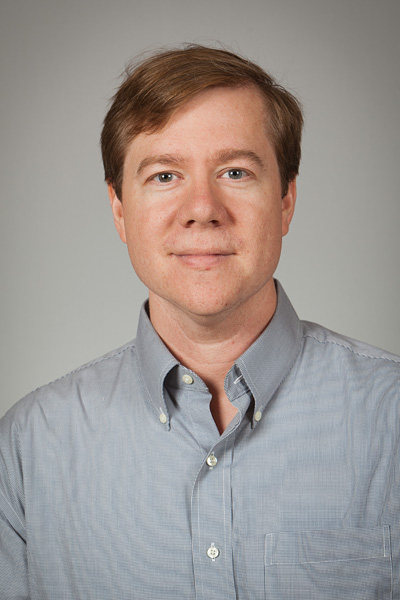 Brandon Wagner, Assistant Professor of Sociology in the Department of Sociology, Anthropology
& Social Work, was part of a research team that published its study, "Geography of
intergenerational mobility and child development," August 14 in the Proceedings of
the National Academy of Sciences. The study showed that children who grow up in urban
counties with high upward mobility exhibit fewer behavioral problems and perform better
on cognitive tests, according to a story published August 15 by MTNV News. In addition to Wagner, others on the research team were principal investigator Sara
S. McLanahan, William S. Tod Professor of Sociology and Public Affairs at Princeton
University and founding director of the Bendheim-Thoman Center for Research on Child
Wellbeing; lead author Louis Donnelly, Princeton; Irv Garfinkel, Columbia University;
Jeanne Brooks-Gunn, Columbia; and Sarah James, Princeton.
Brandon Wagner, Assistant Professor of Sociology in the Department of Sociology, Anthropology
& Social Work, was part of a research team that published its study, "Geography of
intergenerational mobility and child development," August 14 in the Proceedings of
the National Academy of Sciences. The study showed that children who grow up in urban
counties with high upward mobility exhibit fewer behavioral problems and perform better
on cognitive tests, according to a story published August 15 by MTNV News. In addition to Wagner, others on the research team were principal investigator Sara
S. McLanahan, William S. Tod Professor of Sociology and Public Affairs at Princeton
University and founding director of the Bendheim-Thoman Center for Research on Child
Wellbeing; lead author Louis Donnelly, Princeton; Irv Garfinkel, Columbia University;
Jeanne Brooks-Gunn, Columbia; and Sarah James, Princeton.
Hayhoe Asked How to Change 'Climate Deniers'
Katharine Hayhoe, Associate Professor in the Department of Political Science and Director of TTU's Climate Science Center, was interviewed for an August 10 story in Phys.org headlined "What Changes Minds About Climate Change?" the article referred to a query from readers of Reddit: "Former climate change deniers, what changed your mind?" Six-hundred-forty-five people responded, with the story reporting that "Many of the respondents said they were originally influenced by the skeptical beliefs of their families, communities and religion, but studying environmental science in high school or college was pivotal in changing their attitudes," and that "As of 2016, only 9 percent of Americans were dismissive of global warming." Hayhoe's response was to tell the publication that she no longer spends time trying to persuade those with a dismissive mindset except in audiences. "Her goal is to move the larger percentage of people who are doubtful, disengaged and cautious into the 'concerned' category," the article reported. It also referenced Hayhoe's Global Weirding series on YouTube.
Bradatan Takes Fulbright in Romania
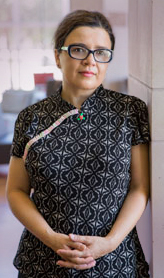 Cristina Bradatan, Associate Professor of Sociology in the Department of Sociology,
Anthropology & Social Work, is one of four Texas Tech faculty members named a Fulbright
Scholar for the 2017-18 academic year, Bradatan will travel to Romania for a real-world
study on how three rural communities are adapting to climate change. Bradatan also
is a faculty member of TTU's Climate Science Center. Her project, titled "Governing
the Commons: Climate Change, Irrigation and Cooperation in Southern Rural Romanian
Communities," will see her conducting interviews with farmers and collecting literature
on the topic. "The goal of this project is to understand what makes people cooperate
when faced with environmental problems—drought, in this case," Bradatan told Texas
Tech Today in an August 9 story about her work. "The study will compare three rural
communities where people adopted different strategies, or did nothing, in order to
deal with this issue." Her Fulbright fellowship is for one semester, spring 2018,
but she expects to continue working for the next two years on the information she
collects.
Cristina Bradatan, Associate Professor of Sociology in the Department of Sociology,
Anthropology & Social Work, is one of four Texas Tech faculty members named a Fulbright
Scholar for the 2017-18 academic year, Bradatan will travel to Romania for a real-world
study on how three rural communities are adapting to climate change. Bradatan also
is a faculty member of TTU's Climate Science Center. Her project, titled "Governing
the Commons: Climate Change, Irrigation and Cooperation in Southern Rural Romanian
Communities," will see her conducting interviews with farmers and collecting literature
on the topic. "The goal of this project is to understand what makes people cooperate
when faced with environmental problems—drought, in this case," Bradatan told Texas
Tech Today in an August 9 story about her work. "The study will compare three rural
communities where people adopted different strategies, or did nothing, in order to
deal with this issue." Her Fulbright fellowship is for one semester, spring 2018,
but she expects to continue working for the next two years on the information she
collects.
McKee Study Referenced in Op-Ed
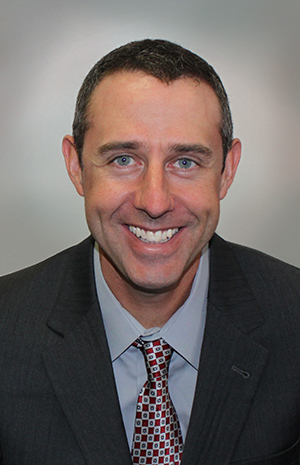 Seth McKee, Associate Professor in the Department of Political Science, was referenced
in an August 8 op-ed in The Washington Post, headlined "Why the Next black President Could be a Republican." The the opinion
piece centers on the work of Theodore R. Johnson, a fellow at New America and an adjunct
professor at Georgetown University's McCourt School of Public Policy; he uses historical
election results to show that black Republicans in Senate and gubernatorial races
since 1965 have been elected nearly as often as black Democrats. From there, "Johnson
theorizes that we're so polarized now that GOP voters will readily vote for any GOP
candidate—black or white—instead of voting against a black GOP candidate (and, thus,
for a Democrat) merely because of race," the article stated. The research of McKee
and co-researcher M.V. Hood of the University of Georgia was quoted from their study
"True Colors: White Conservatives Support for Minority Republican Candidates," published
in the Spring 2016 Public Opinion Quarterly. "At a minimum, the level of ideological
polarization in American politics masks racially prejudiced voting behavior, and at
a maximum, it renders it inoperable," McKee and Hood found.
Seth McKee, Associate Professor in the Department of Political Science, was referenced
in an August 8 op-ed in The Washington Post, headlined "Why the Next black President Could be a Republican." The the opinion
piece centers on the work of Theodore R. Johnson, a fellow at New America and an adjunct
professor at Georgetown University's McCourt School of Public Policy; he uses historical
election results to show that black Republicans in Senate and gubernatorial races
since 1965 have been elected nearly as often as black Democrats. From there, "Johnson
theorizes that we're so polarized now that GOP voters will readily vote for any GOP
candidate—black or white—instead of voting against a black GOP candidate (and, thus,
for a Democrat) merely because of race," the article stated. The research of McKee
and co-researcher M.V. Hood of the University of Georgia was quoted from their study
"True Colors: White Conservatives Support for Minority Republican Candidates," published
in the Spring 2016 Public Opinion Quarterly. "At a minimum, the level of ideological
polarization in American politics masks racially prejudiced voting behavior, and at
a maximum, it renders it inoperable," McKee and Hood found.
Witmore Fellowship for Archaeology Research
Christopher Witmore, Associate Professor in the Department of Classical & Modern Languages & Literatures, received a fellowship of $4,830 sponsored by CAS at the Norwegian Academy of Science and Letters. Witmore's project title is "After Discourse: Things, Archaeology and Heritage in the 21th (sic) Century." Awards were announced by the TTU Office of Research Services the week of August 3-9.
Weiss, Bruning, Dahl Continue VORTEX-SE
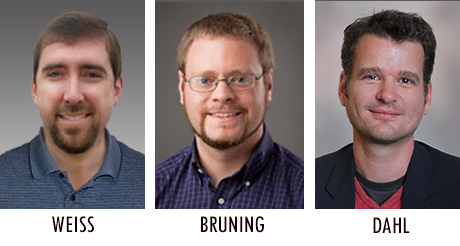 Christopher Weiss, Associate Professor; Eric Bruning, Associate Professor; and Johannes
Dahl, Assistant Professor; all Atmospheric Scientists in the Department of Geosciences,
were awarded a total of $149,754 from the National Oceanic & Atmospheric Administration
(NOAA) for the research project, "NWI VORTEX-SE: Insights into the Structure and Predictability
of Southeastern U.S. Tornadic Storms Afforded by Intensive Observation and High-Resolution
Numerical Modeling." This grant is the third in a series from NOAA for the VORTEX-SE
project, which is working to better predict tornadoes in the American Southeast. "We
have spent nearly five months in Alabama the last couple spring seasons using our
in situ and radar instrumentation to try to better understand how tornadoes develop
in this section of the country," Weiss said. The project has attracted quite a bit
of coverage by national media such as CNN and coverage by local media such as Texas Tech Today. Awards were announced by the
TTU Office of Research Services the week of August 3-9.
Christopher Weiss, Associate Professor; Eric Bruning, Associate Professor; and Johannes
Dahl, Assistant Professor; all Atmospheric Scientists in the Department of Geosciences,
were awarded a total of $149,754 from the National Oceanic & Atmospheric Administration
(NOAA) for the research project, "NWI VORTEX-SE: Insights into the Structure and Predictability
of Southeastern U.S. Tornadic Storms Afforded by Intensive Observation and High-Resolution
Numerical Modeling." This grant is the third in a series from NOAA for the VORTEX-SE
project, which is working to better predict tornadoes in the American Southeast. "We
have spent nearly five months in Alabama the last couple spring seasons using our
in situ and radar instrumentation to try to better understand how tornadoes develop
in this section of the country," Weiss said. The project has attracted quite a bit
of coverage by national media such as CNN and coverage by local media such as Texas Tech Today. Awards were announced by the
TTU Office of Research Services the week of August 3-9.
Presley Receives Grant from Texas
Steven Presley, Professor in The Institute of Environmental & Human Health (TIEHH), received $5,000 of an anticipated $10,000 grant from the Texas Department of State Health Services (DSHS) for Public Health Grant #3. The award was announced by the TTU Office of Research Services the week ending August 2.
McGuire to Study Lake Erie Bat Migration
Liam McGuire, Assistant Professor in the Department of Biological Sciences, received a grant of $32,495 from the Pennsylvania Department of Environmental Protection. The funds will go toward research on a two-year project to study bat migration across Lake Erie. The grant was announced by the TTU Office of Research Services the week ending August 2.
Hayhoe Says Climate Report 'Not Political'
 Katharine Hayhoe, Associate Professor in the Department of Political Science and Director
of TTU's Climate Science Center, was quoted in a post to Nashville Public Radio as one of the lead authors of a document from the U.S. Global Change Research Program, a federally-mandated assessment of climate science not yet published but leaked the week of August 7 to the New York Times. The post states that, "In many ways the report is a direct challenge to President
Donald Trump's dismissal of concern about climate change," and that although the study
"was prepared largely under the Obama administration, it's not a political document."
Hayhoe told the radio station: "This is the most comprehensive science report that
has been published outside of the auspices of the Intergovernmental Panel on Climate
Change, to my knowledge," and that it also is the most up-to-date, as the most recent
previous report is 4 years old. Hayhoe described the report as bringing together that
latest science in a way that "presents us with a stark and unyielding picture of the
tremendous impacts humans are having on this planet and, moreover, the importance
of the decisions that we are making today to reduce and eventually eliminate our carbon
emissions." The final draft is awaiting publication, pending review by the Trump administration.
"If the report is approved, then it is just a matter of logistics before it is published.
However, the administration may choose to not approve it, or to request changes,"
Hayhoe was quoted as saying, adding that if it is not approved or changes are requested,
"the author team will then have to decide whether they can make [those changes] or
not." Regarding this same document and its findings, Hayhoe was quoted August 8 in
Price of Oil, August 8 in the Fort Worth Star-Telegram, and August 9 in The Times of India.
Katharine Hayhoe, Associate Professor in the Department of Political Science and Director
of TTU's Climate Science Center, was quoted in a post to Nashville Public Radio as one of the lead authors of a document from the U.S. Global Change Research Program, a federally-mandated assessment of climate science not yet published but leaked the week of August 7 to the New York Times. The post states that, "In many ways the report is a direct challenge to President
Donald Trump's dismissal of concern about climate change," and that although the study
"was prepared largely under the Obama administration, it's not a political document."
Hayhoe told the radio station: "This is the most comprehensive science report that
has been published outside of the auspices of the Intergovernmental Panel on Climate
Change, to my knowledge," and that it also is the most up-to-date, as the most recent
previous report is 4 years old. Hayhoe described the report as bringing together that
latest science in a way that "presents us with a stark and unyielding picture of the
tremendous impacts humans are having on this planet and, moreover, the importance
of the decisions that we are making today to reduce and eventually eliminate our carbon
emissions." The final draft is awaiting publication, pending review by the Trump administration.
"If the report is approved, then it is just a matter of logistics before it is published.
However, the administration may choose to not approve it, or to request changes,"
Hayhoe was quoted as saying, adding that if it is not approved or changes are requested,
"the author team will then have to decide whether they can make [those changes] or
not." Regarding this same document and its findings, Hayhoe was quoted August 8 in
Price of Oil, August 8 in the Fort Worth Star-Telegram, and August 9 in The Times of India.
Shu Taking Fulbright in Singapore
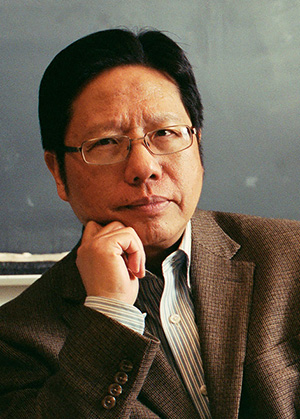 Yuan Shu, Associate Professor in the Department of English and Director of Texas Tech
University's Asian Studies program, is one of four TTU faculty members named a Fulbright
Scholar for the 2017-18 academic year. Shu will use his Fulbright to teach transnational
American studies to university students in Singapore, according to an August 2 article
in TexasTechToday. His proposal, "Democracy, Asian Values and Transnational American
Studies," will include one of three courses—"Introduction to American Studies," "Post-9/11
American Literature" or "Vietnam War Literature"—as a seminar at the graduate level.
He also plans to investigate how the relationship between democracy/human rights and
Asian values has evolved in Singaporean literature and culture through the framework
of transnational American studies. Shu will teach and conduct research at the National
University of Singapore for five months, from August 2017 to January 2018. When he
returns, Shu will organize a conference on transnational American studies in August
2018.
Yuan Shu, Associate Professor in the Department of English and Director of Texas Tech
University's Asian Studies program, is one of four TTU faculty members named a Fulbright
Scholar for the 2017-18 academic year. Shu will use his Fulbright to teach transnational
American studies to university students in Singapore, according to an August 2 article
in TexasTechToday. His proposal, "Democracy, Asian Values and Transnational American
Studies," will include one of three courses—"Introduction to American Studies," "Post-9/11
American Literature" or "Vietnam War Literature"—as a seminar at the graduate level.
He also plans to investigate how the relationship between democracy/human rights and
Asian values has evolved in Singaporean literature and culture through the framework
of transnational American studies. Shu will teach and conduct research at the National
University of Singapore for five months, from August 2017 to January 2018. When he
returns, Shu will organize a conference on transnational American studies in August
2018.
Sagarzazu on Turmoil in Venezuela
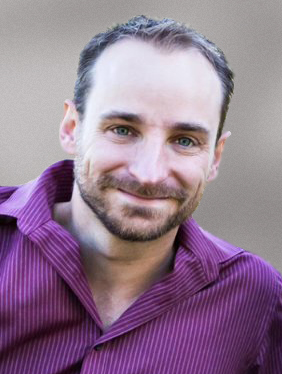 Inaki Sagarzazu, Assistant Professor in the Department of Political Science, was interviewed August 1 by Texas Public Radio on how the political turmoil in Venezuela has affected one of Texas' largest cities:
San Antonio. The broadcast described recent elections in Venezuela as a move toward
dictatorship when "President Nicolás Maduro refused the results of a nonbinding referendum
in mid-July opposing his National Constituent Assembly. More than 1,000 Venezuelans in the San Antonio area turned out to show solidarity by casting votes in this symbolic referendum," the
broadcast reported.
Inaki Sagarzazu, Assistant Professor in the Department of Political Science, was interviewed August 1 by Texas Public Radio on how the political turmoil in Venezuela has affected one of Texas' largest cities:
San Antonio. The broadcast described recent elections in Venezuela as a move toward
dictatorship when "President Nicolás Maduro refused the results of a nonbinding referendum
in mid-July opposing his National Constituent Assembly. More than 1,000 Venezuelans in the San Antonio area turned out to show solidarity by casting votes in this symbolic referendum," the
broadcast reported.
College of Arts & Sciences
-
Address
Texas Tech University, Box 41034, Lubbock, TX 79409-1034 -
Phone
806.742.3831 -
Email
arts-and-sciences@ttu.edu
